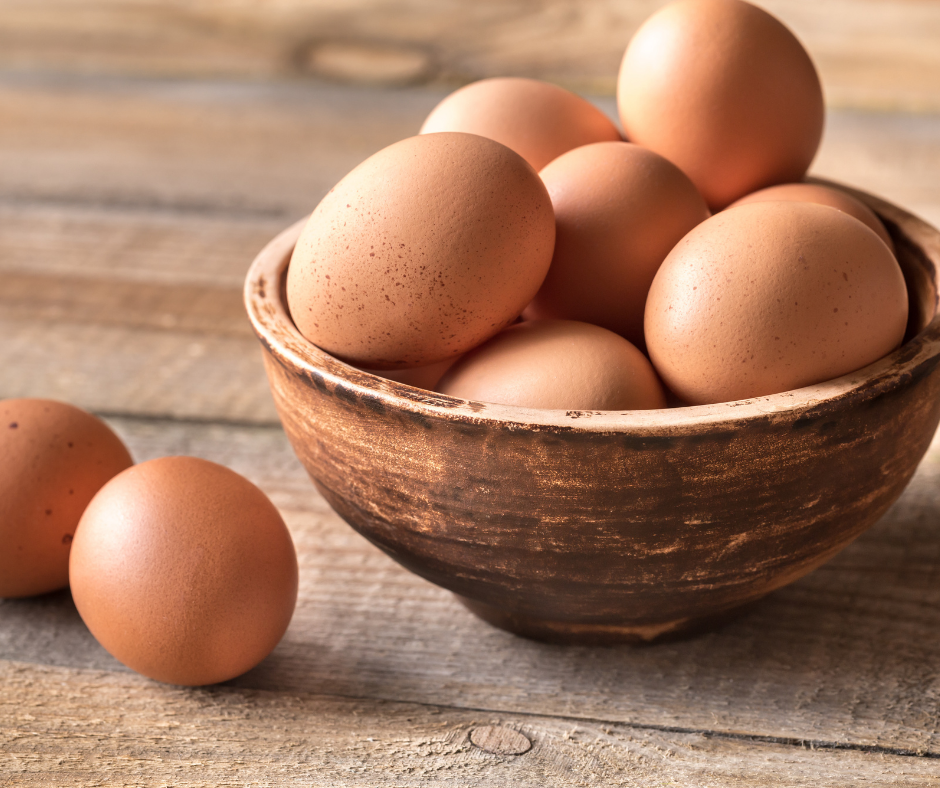You’ve successfully raised your fluffy, sweet chicks into beautiful hens. Your hens have started to lay and you can’t wait to crack open your first home raised egg. When you go out to the coop to collect eggs, you might be surprised to see that your eggs aren’t always clean and perfect. There are many things online about the do’s and don’t of cleaning eggs. What’s the best and safest way to clean your farm eggs?
Should you wash fresh eggs?
You may be surprised to learn that the United States is one of the few countries that sells refrigerated eggs. If you were to buy eggs in many other countries, you’d buy them from the shelf, not from the refrigerated section. This may seem shocking, but it’s for a good reason.
Eggs are designed to be protected from bacteria. The shell of the egg is covered in tiny pores that can allow bacteria to pass from the outside environment into the nutrient-rich interior part of the egg. The inside of the egg is the ideal environment for bacteria to grow, so the hen’s body has developed the perfect solution to preventing bacteria from seeping into the pores of the shell.
When a hen lays an egg, her body places a thin, protective coating on the outside of the shell. This coating is called a bloom. The bloom seals the pores and creates a barrier that keeps bacteria out of the egg.
The bloom is easily removed from the egg. If the egg gets wet, the bloom dissolves and is removed. This is why here in the U.S., eggs are kept refrigerated. All eggs that are sold commercially are washed and therefore the protective bloom is removed. To keep eggs fresh and bacteria-free longer, the eggs are kept cool. In other countries, farm eggs are not washed before being sold so the bloom is still intact.
Your eggs will have a longer shelf life if you don’t wash the bloom off. Eggs that have been washed may only stay fresh for a couple of weeks, while eggs that have the bloom intact will stay fresh well over a month.
The best way to keep your eggs clean is to prevent them from getting dirty in the first place. You can do this by keeping your hens’ nesting boxes clean. Remove any poop, feathers and debris. Line the boxes with fresh shavings. When you check for eggs each day, do a quick check and remove any debris that could get your eggs dirty.
How to Clean Eggs
Occasionally, you may need to clean your eggs. When you find that you do need to clean your eggs, there are a few things that you can do to both clean your eggs and prevent bacteria from getting into the egg
Start by removing any stuck-on debris with a dry cloth or paper towel. You’d be surprised at what will come off of your eggs with a quick swipe of a paper towel. A dry paper towel won’t damage the bloom and can remove feathers, shavings or other bits of dirt that can get stuck to the egg. Try cleaning your egg first with a dry paper towel before using a wet cleaning method.
Sometimes a dry cloth won’t remove the debris or poop that is stuck on your egg. When this is the case, cleaning with water is the best option.
Keep in mind that the egg is porous, therefore it’s possible to accidentally introduce water, cleaning solutions and other things into the egg while you’re cleaning it. For this reason, you don’t want to introduce bleach, soap or other chemicals to the outside of your egg. These chemicals could get into the egg through the pores as you are cleaning the egg.
Instead, use warm water and clean room temperature eggs. Use a clean cloth to gently wipe at dirt on the egg. Don’t wash eggs in cold water. This causes the interior of the egg to shrink slightly, creating a vacuum that will pull water, bacteria and dirt into the egg. Warm water over a room temperature egg is the safest way to clean eggs.
Once your eggs are cleaned, pat the dry with a paper towel and place into an egg carton. Eggs that have been washed no longer have the protective bloom to keep the bacteria out. Keep washed eggs in the refrigerator to keep them fresh longer.
